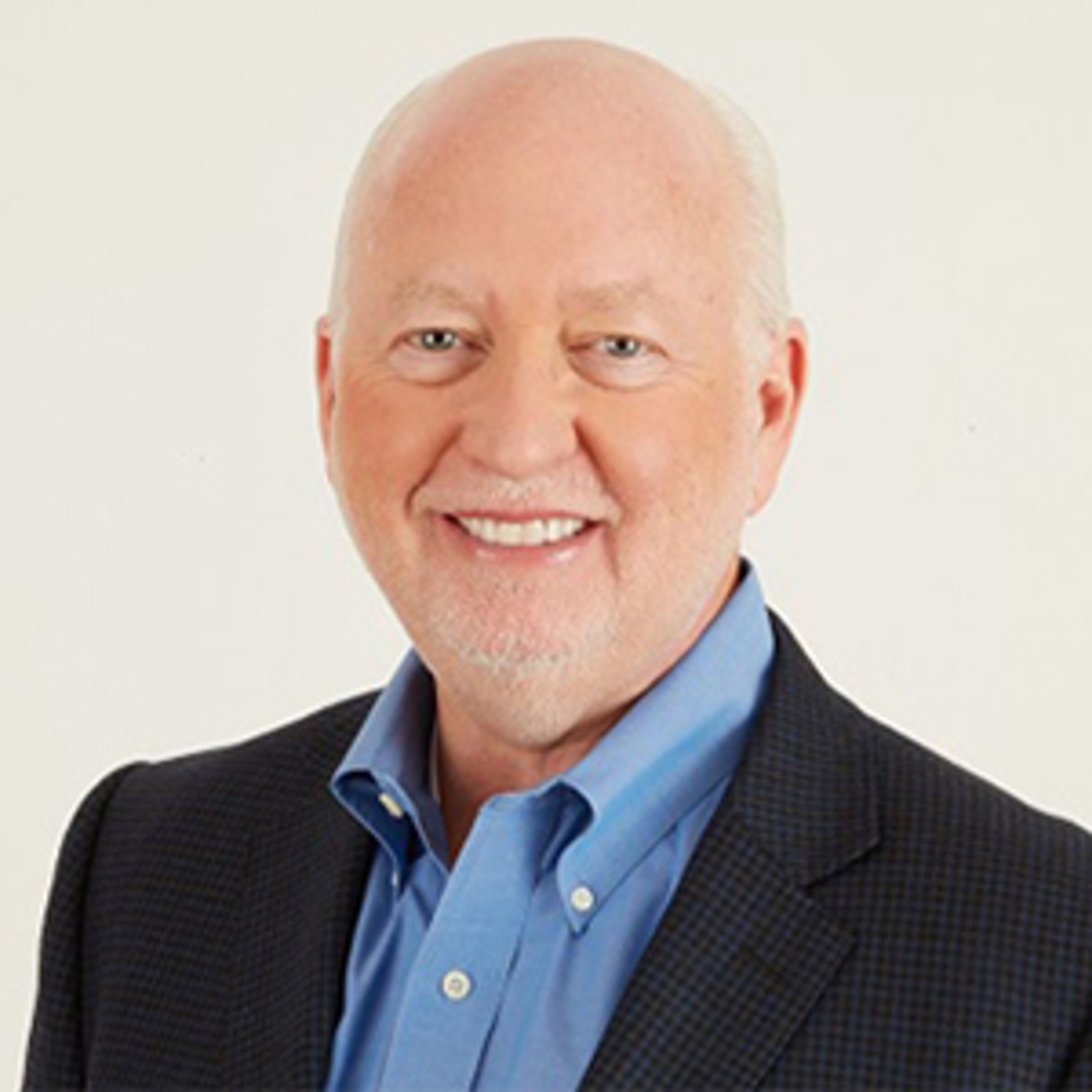Caregivers: Giving Thanks to the Ones Who Give the Most
This Thanksgiving, we honor the selfless dedication of caregivers, whose compassion and tireless efforts provide support, love, and dignity to those in need.
Nov 24, 2024
Written by our Founder and CEO, the Celebrations Pulse letters aim to engage with our community. By welcoming your ideas and sharing your stories, we want to help you strengthen your relationships with the most important people in your life.
When I gather around the Thanksgiving table with my family this week, we’ll reflect on the abundance of food before us, the warmth of our relationships, and the blessings of the past year. In the spirit of this holiday about gratitude, I’d like to highlight a group deserving of our thanks: caregivers.
These remarkable individuals, often working tirelessly behind the scenes – and without pay – provide love, support, and care to their loved ones who need it most. They embody compassion and selflessness as they share their time and energy to support other people.
It’s fitting that National Family Caregivers Month coincides with Thanksgiving. If ever there were a group deserving of extra recognition, it would be the millions of people around us who ensure that others are cared for with dignity, kindness, and respect.
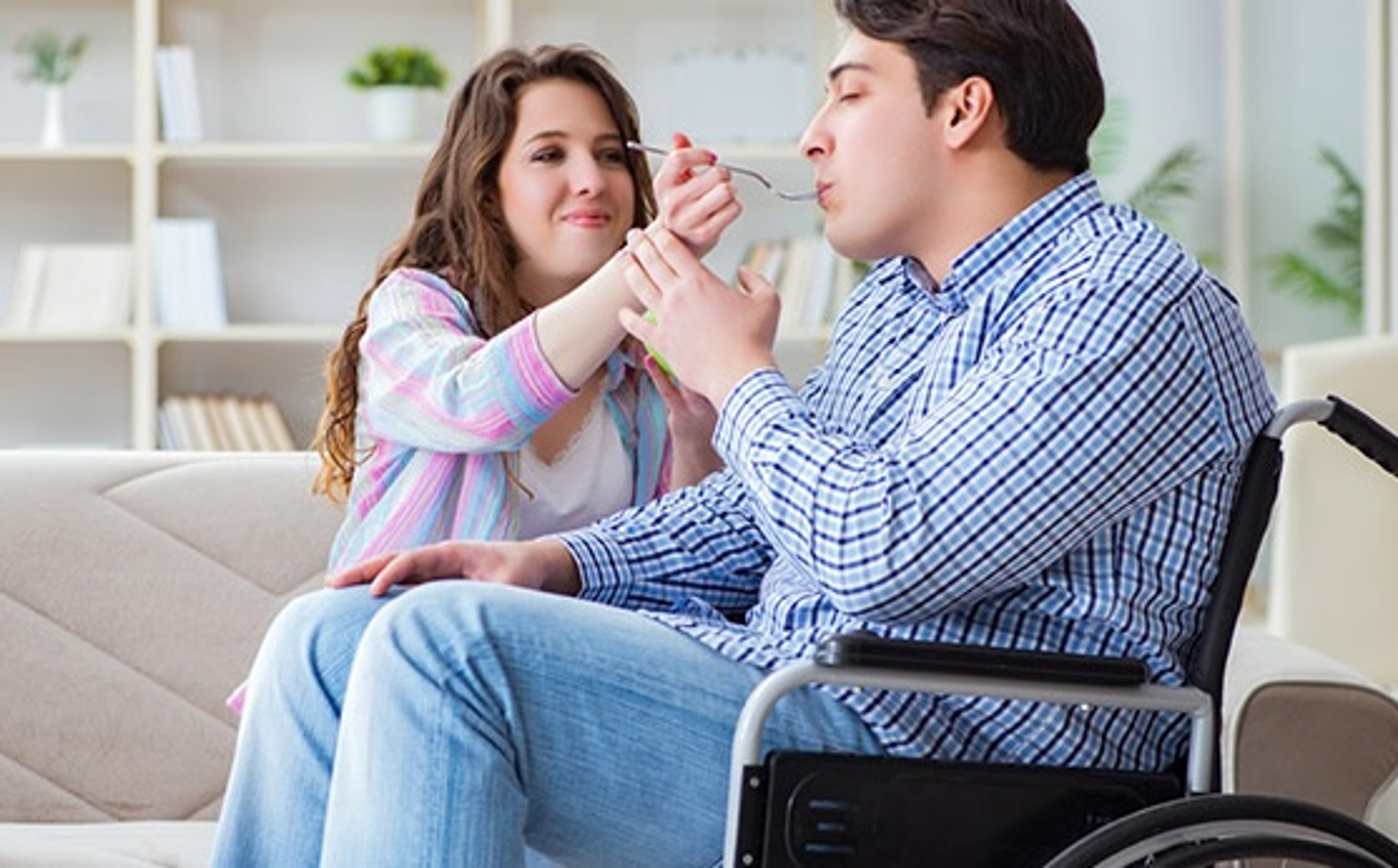
Quiet heroes
Caregiving is often an unrecognized act of heroism. Yet caregivers’ contributions are profound as they juggle daily schedules, grocery shopping, medication management, transportation, housework, and countless other tasks for other people while juggling their own lives. They bring stability, comfort, and hope to the lives they touch.
According to the National Alliance for Caregiving, more than 65 million Americans, or 29% of the adult U.S. population, serve as a family caregiver for an ill or disabled relative. However, the Rand Corporation estimates that the true number could be closer to 100 million, as it includes a broader scope of caregiving, such as supporting veterans.
A key challenge in recognizing caregivers is that many don’t identify as such; to them, it’s simply an act of love. Debbie Howard, a caregiving adviser and author of The Caregiving Journey: Information, Guidance, Inspiration., knows this firsthand. “When I became a caregiver for my mom in 2008, I had never heard the term ‘caregiver,’” she says. “I was just going home to help my mom.”
After her mom was diagnosed with stage 4 lung cancer, Debbie moved back to South Carolina to care for her. In this week’s Celebrations Chatter podcast, she and her siblings shared how difficult taking care of her mom would be:
“Even with a plan, my sisters and I were financially, emotionally, and physically depleted. It’s a heavy emotional load to bear.”
Caring for caregivers
The average caregiving experience lasts 4.5 years, but for conditions like dementia or Alzheimer’s, it can stretch to 15 to 20 years. The extended commitment takes a profound toll, not just on caregivers' time and energy but also on their emotional and financial well-being. Remember that they need to take care of themselves, too.
Debbie emphasizes the importance of self-care and planning for caregivers. “Those two elements can make the process smoother and allow you to create meaningful memories with your loved one,” she says.
Gracie, a Celebrations Pulse community member from West Virginia, shared how these early lessons from her mom and her teachers inspired her caregiving journey. As an adult, she carried these lessons forward, working in the juvenile court system for 21 years to help shape the lives of children in her community. Now semi-retired, she supports organizations like Habitat for Humanity and Goodwill through donations and offers her time to assist neighbors with food deliveries, mail packages, and trash collection.
Her advice to others is simple yet profound: “Once you start giving, your heart becomes lighter, and the world seems a little brighter.”
And because not all caregivers identify as such, Gracie advises us to support them in small ways: “Paint river stones with hopeful messages, scatter them in your neighborhood, or find other creative acts of kindness to bring unexpected joy to others.”
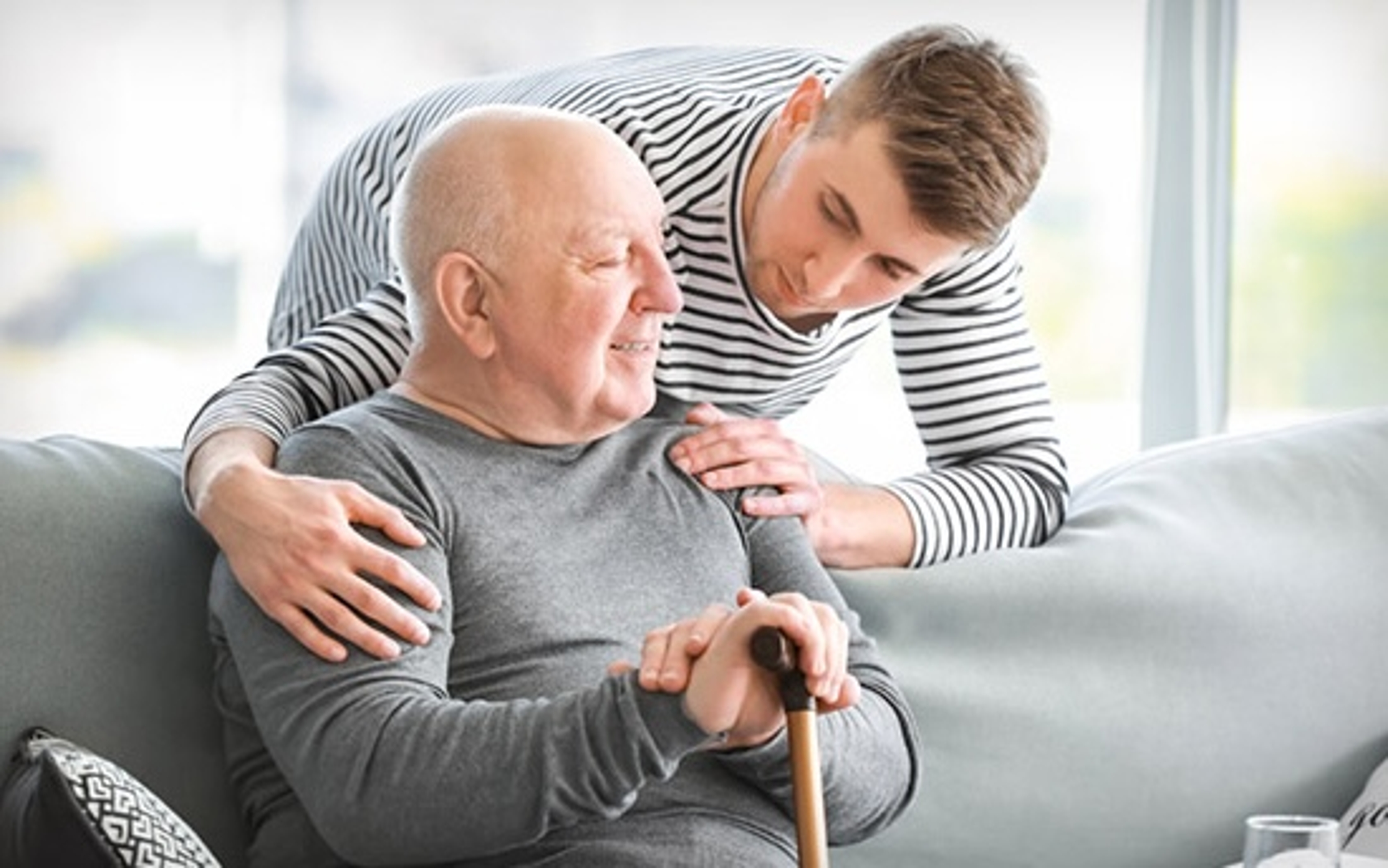
Stories of love and dedication
Last week, I asked you to share stories of how caregiving has impacted your lives. The responses highlight the selflessness, resilience, and compassion of caregivers within our community. Here is just a sample of the inspiring stories you shared.
Justin, a community member in Ohio, shared the story of his Amazing Mom, who dedicated her life to helping others as a professional caregiver. Once he became an adult, she took over his care as he struggled with medical issues. He explains:
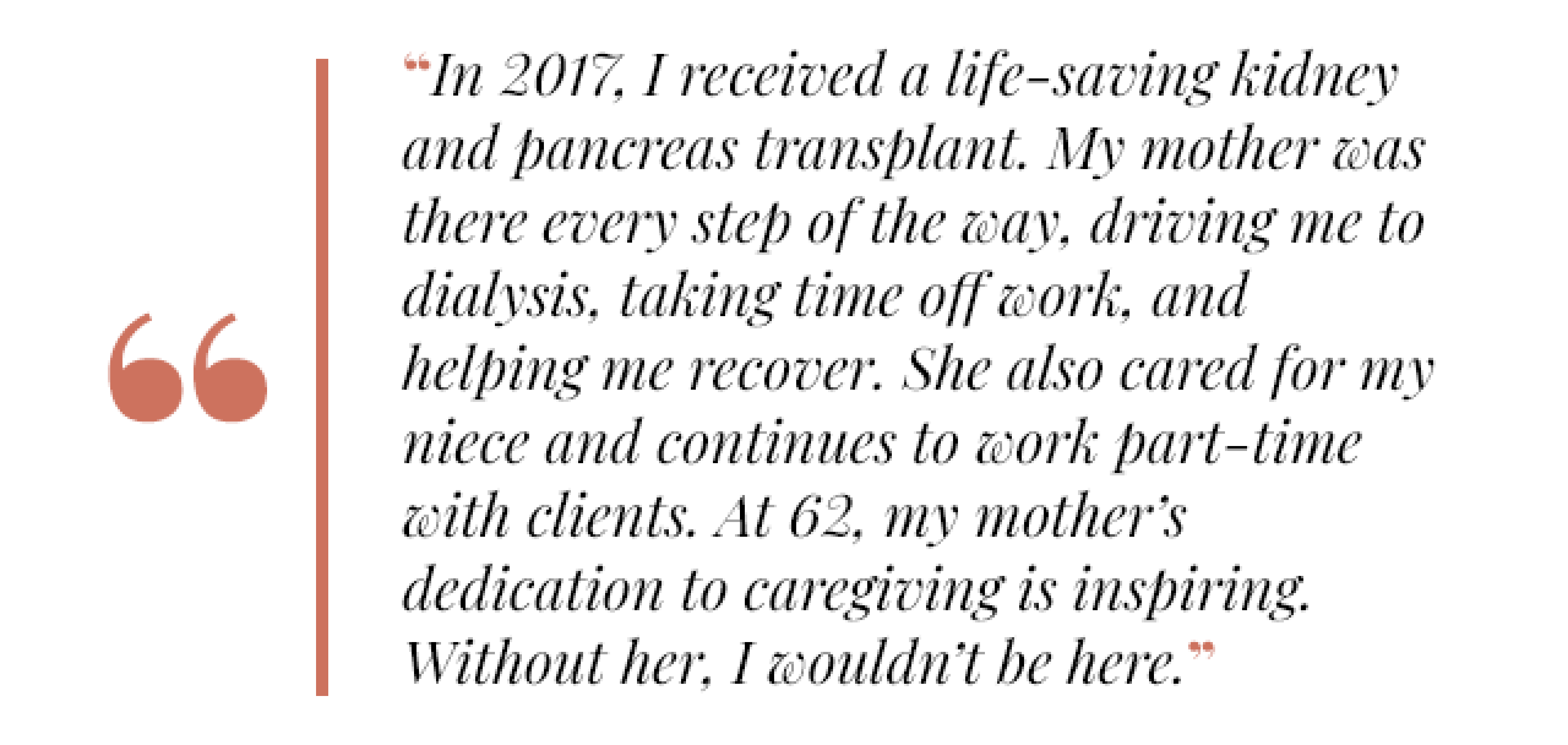
Other stories showed how caregiving often jumps across generations. Crystal, a reader from Arizona, shared how her 25-year-old daughter, Rebecca, has taken on the responsibility of caring for her elderly grandparents.
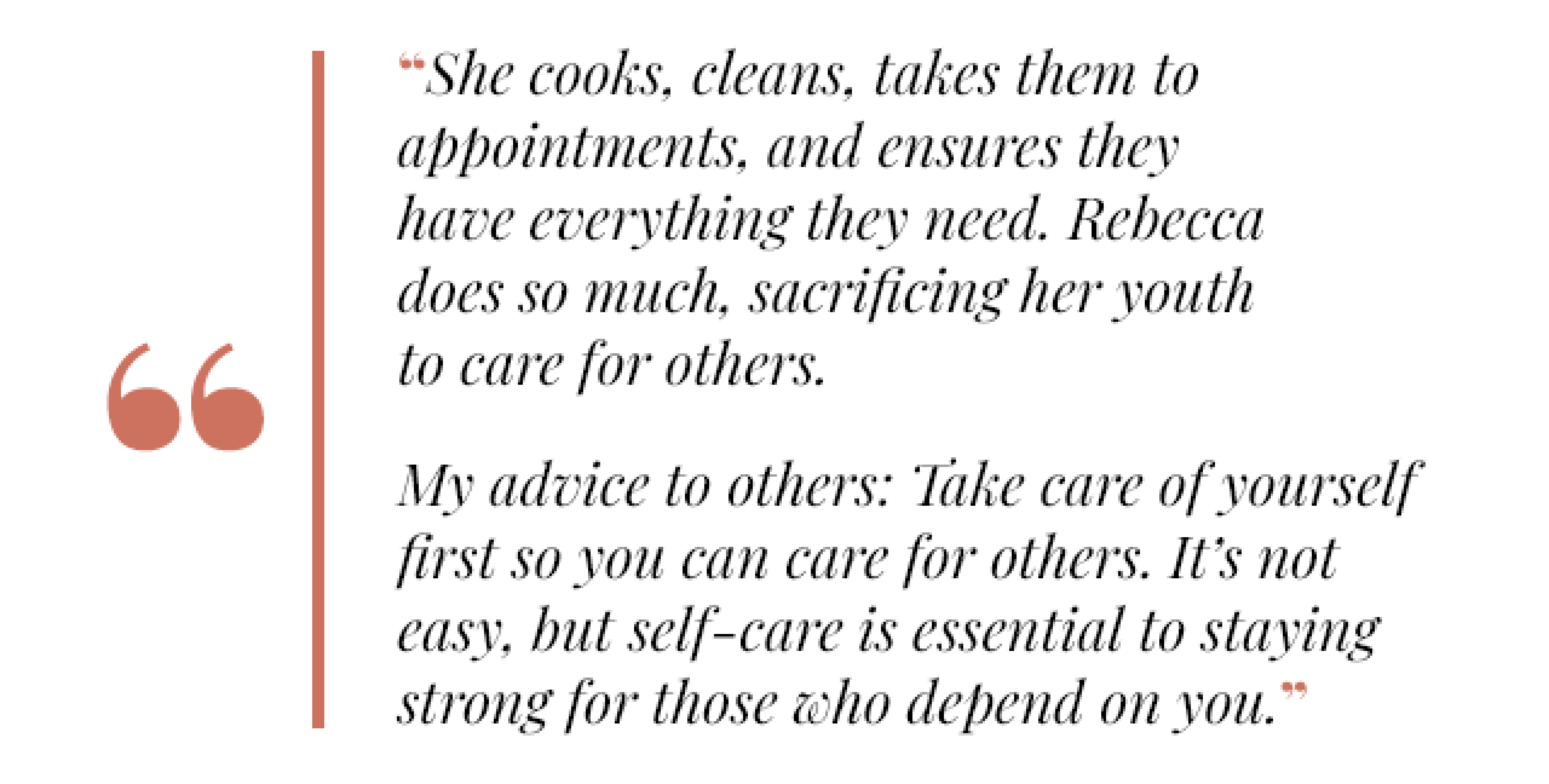
One community member reminded me that caregiving isn’t just a personal responsibility – it can also be a collective effort. Liesl shared how her neighborhood came together to coordinate care for an elderly resident, ensuring she can continue living in her family home. Liesl continues:
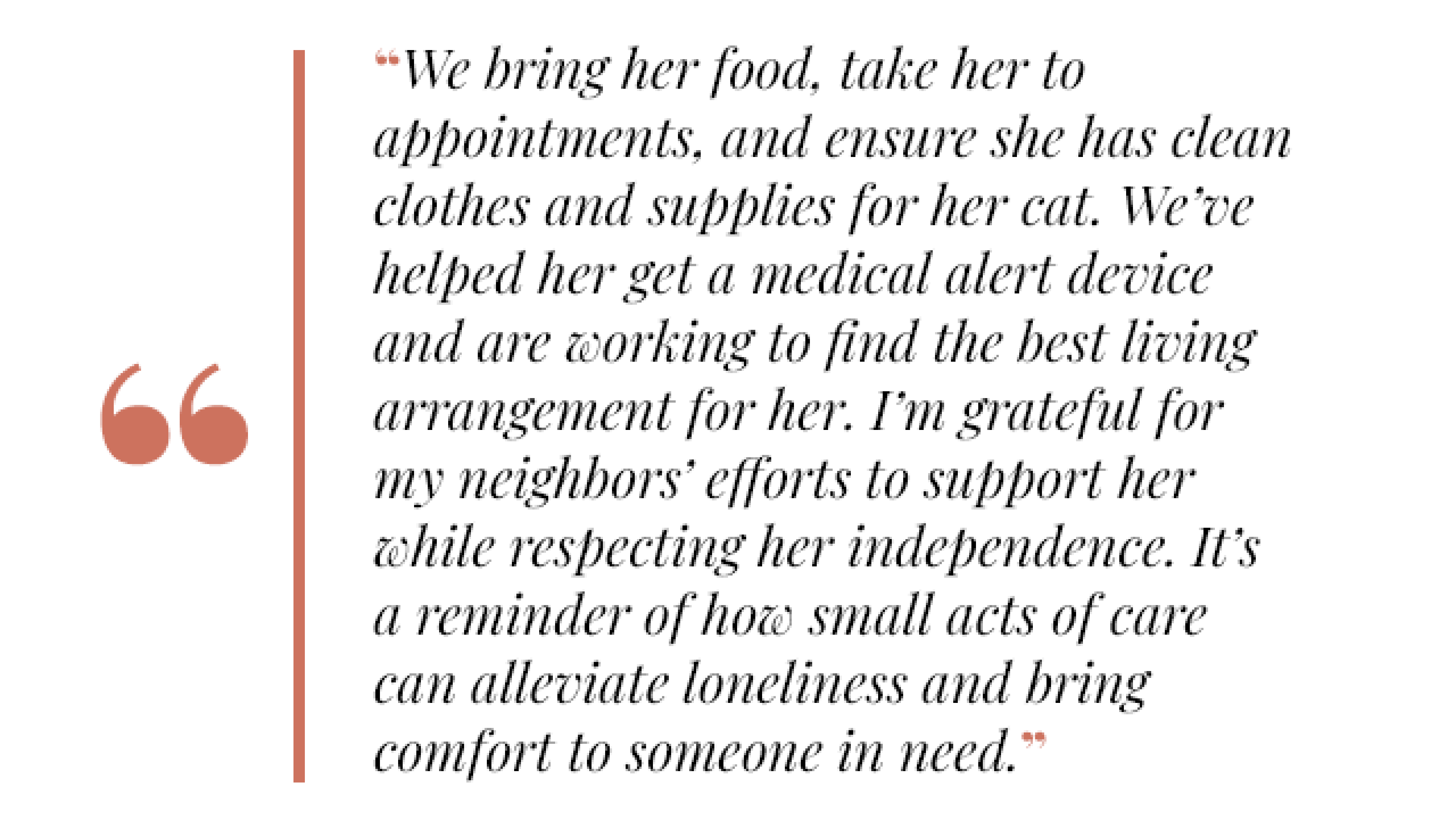
All these stories are a testament to the incredible strength and love of caregivers. Whether they’re supporting a family member, a friend, or a neighbor, caregivers remind us of the importance of compassion and connection.
As we celebrate Thanksgiving, let’s take a moment to honor the caregivers – their selflessness and dedication are truly something to be grateful for.
All the best,
Jim
Favorite Thanksgiving rituals
Last week, I wrote about the rituals of Thanksgiving and how they reinforce gratitude. I invited readers to vote on their favorite traditions – and the turkey dinner won in a landslide, followed by cooking together, parades, and football.
Many also shared stories about their unique holiday traditions. From heartfelt family gatherings to unique ways of bringing joy to others, the stories showcased the many reasons why Thanksgiving is such a special occasion. Here are a few of my favorites:
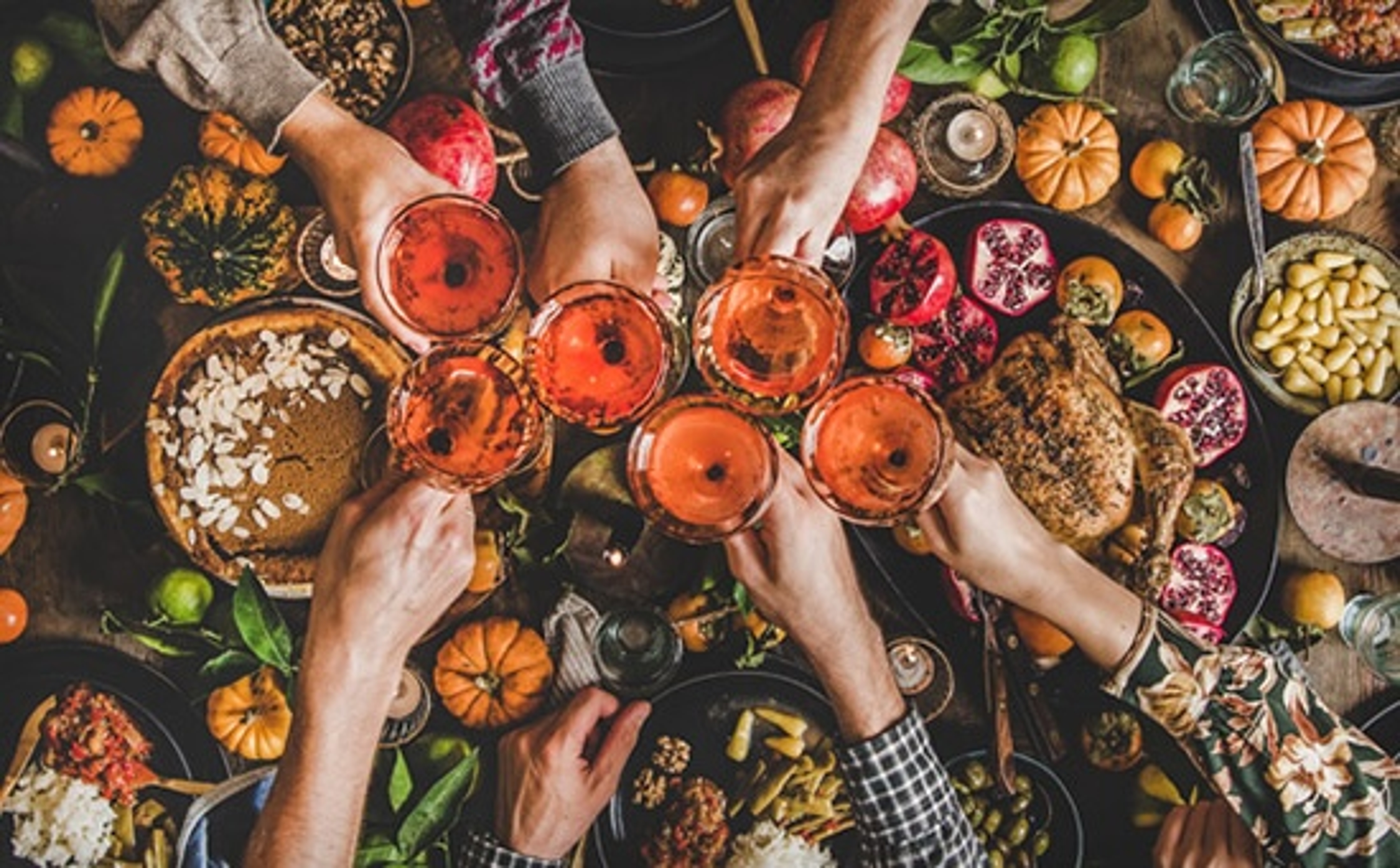
For Alec and his extended family, Thanksgiving is all about gratitude. As the oldest of 10 children, he has witnessed their gatherings grow with each generation. To honor their family’s youngest voices, they’ve introduced a tradition where even the littlest grandchildren share what makes them happiest – a simple act that has created lasting memories and strengthened their bond. “Thanksgiving is perhaps the most important and enjoyable family holiday of all,” he shares. And for his family, gratitude isn’t just a theme, it’s a way of life.
Nancy has redefined Thanksgiving for herself and her husband, who face mobility challenges. They celebrate at a nearby restaurant, decorating their table with festive touches to create a warm ambiance. Each year, they notice older men dining alone nearby. With kindness in their hearts, they include them in small, meaningful ways in their celebration – sharing greetings, conversations, and this year, plans to gift them pies or bread to take home. Nancy’s approach reminds us that Thanksgiving isn’t just about who we gather with, but how we make others feel.
Rita, a sheriff’s deputy, has spent 22 Thanksgivings on duty. To bring her team together, she coordinates a “Friendsgiving feast,” where coworkers share their favorite dishes and stories. This year’s gathering holds even greater significance after the loss of five colleagues. “I hope everyone will be grateful for the blessings we share,” Rita says, exemplifying resilience and gratitude in challenging circumstances.





